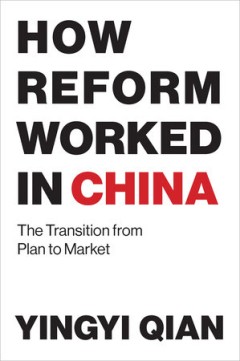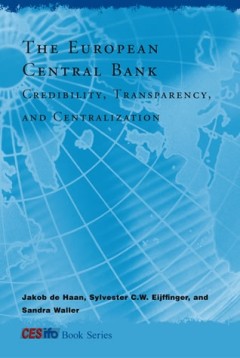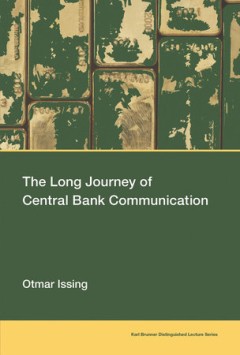Filter by

Die Anfänge der deutschen Literatur: Eine Einführung
Das Buch bietet eine Einführung in die Anfänge der deutschen Dichtkunst in der Zeit vom späten 8. bis zum frühen 10. Jahrhundert. Es präsentiert die zwölf überlieferten poetischen Werke der Epoche in Nachdichtungen, die den ästhetischen Reiz der Vorlagen vermitteln, und in wörtlichen Prosaübersetzungen, die sich am Wortlaut der Originale orientieren (Hildebrandslied, Merseburger Zaube…
- Edition
- 1
- ISBN/ISSN
- 978-3-662-64153-8
- Collation
- -
- Series Title
- -
- Call Number
- IX, 274

Medical Missionaries and Colonial Knowledge in West Africa and Europe, 1885-1914
This open access book offers an entangled history of hygiene by showing how knowledge of purity, health and cleanliness was shaped by evangelical medical missionaries and their encounters with people in West Africa. By tracing the interactions and negotiations of six Basel Mission doctors, who practised on the Gold Coast and in Cameroon from 1885 to 1914, the author demonstrates how notions of …
- Edition
- -
- ISBN/ISSN
- 978-3-031-27128-1
- Collation
- XVIII, 454
- Series Title
- -
- Call Number
- -

Die Akten des Kaiserlichen Reichshofrats (RHR)
"Der Reichshofrat übte gemeinsam mit dem Reichskammergericht im Namen des Kaisers die Höchstgerichtsbarkeit im Heiligen Römischen Reich aus. Er fungierte darüber hinaus als oberster Lehnshof, als Beratungsgremium des Reichsoberhaupts und als Administrationsorgan der kaiserlichen Reservatrechte in Standeserhebungs- und Privilegienangelegenheiten. Das archivalische Erbe des Reichshofrats w…
- Edition
- -
- ISBN/ISSN
- 978-3-503-21255-2
- Collation
- 725
- Series Title
- -
- Call Number
- -

How Reform Worked in China: The Transition from Plan to Market
A noted Chinese economist examines the mechanisms behind China's economic reforms, arguing that universal principles and specific implementations are equally important.OCLC-licensed vendor bibliographic record.
- Edition
- -
- ISBN/ISSN
- 9780262342728
- Collation
- 1 online resource
- Series Title
- -
- Call Number
- -

Central Bank Communication, Decision Making, and Governance: Issues, Challeng…
Experts analyze the recent emphasis on central communication as an additional policy and accountability device.In recent years central bankers have placed new emphasis on communication with financial markets and the general public. They have done this not only through the traditional channel of monetary policy pronouncements but also by increasing the quantity of information they make public. Y…
- Edition
- -
- ISBN/ISSN
- 9781461931881
- Collation
- 1 online resource (vi, 318 pages) :illustrations.
- Series Title
- -
- Call Number
- -

The European Central Bank: Credibility, Transparency, and Centralization
An examination of the debates on European Central Bank monetary policy, focusing on issues of transparency, credibility, and accountability and the effect of the ECB's decentralized structure.The adoption of the euro in 1999 by 11 member states of the European Union created a single currency area second in economic size only to the United States. The euro zone's monetary policy is now set by th…
- Edition
- -
- ISBN/ISSN
- 9780262271400
- Collation
- 1 online resource (264 pages) :illustrations.
- Series Title
- -
- Call Number
- -

https://doi.org/10.7551/mitpress/3000.001.0001?locatt=mode:legacy;http://www.…
Annotation Japan's financial institutions and policy underwent remarkable change in the past decade. The country began the 1990s with a heavily regulated financial system managed by an unchallenged Ministry of Finance and ended the decade with a Big Bang financial market reform, a complete restructuring of its regulatory financial institutions, and an independent central bank. These reforms hav…
- Edition
- -
- ISBN/ISSN
- 9780262269872
- Collation
- 1 online resource (viii, 196 pages) :illustrations
- Series Title
- -
- Call Number
- -

Neural Transplantation :An Introduction.
Although there are many scientific and philosophical reasons to study the brain, for William J. Freed, "the most compelling reason to study the brain is to be able to repair the brains of individuals with nervous system injury or disease." Advances in repairing the nervous system, as well as new data on brain development, growth, and plasticity, have revolutionized the field of brain research a…
- Edition
- -
- ISBN/ISSN
- 9780262273145
- Collation
- 1 online resource (573 pages).
- Series Title
- -
- Call Number
- -

The long journey of central bank communication
Central bank communication has evolved from secretiveness to transparency and accountability—from a reluctance to give out any information at all to the belief in communication as a panacea for effective policy. In this book, Otmar Issing, himself a former central banker, discusses the journey toward transparency in central bank communication. Issing traces the development of transparency, ex…
- Edition
- -
- ISBN/ISSN
- 9780262355995
- Collation
- 1 online resource (104 pages).
- Series Title
- -
- Call Number
- -

Thinking Strategically: The Major Powers, Kazakhstan, and the Central Asian N…
More than ten years after the breakup of the Soviet Union, none of the major powers, including Russia, has developed a cohesive geopolitical strategy for dealing with the countries and regions that once made up the USSR. Even after September 11 and the sudden importance of Central Asia in the struggle against global terrorism, the United States continues to deal with the region in fragmented an…
- Edition
- -
- ISBN/ISSN
- 9780262278133
- Collation
- 1 online resource (xii, 243 pages).
- Series Title
- -
- Call Number
- -
 Computer Science, Information & General Works
Computer Science, Information & General Works  Philosophy & Psychology
Philosophy & Psychology  Religion
Religion  Social Sciences
Social Sciences  Language
Language  Pure Science
Pure Science  Applied Sciences
Applied Sciences  Art & Recreation
Art & Recreation  Literature
Literature  History & Geography
History & Geography